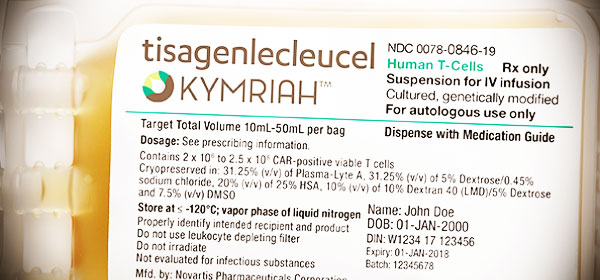The Federal Drug Administration (FDA) in the United States has approved a treatment that has been hailed as opening a ‘new frontier’ in medicine.
The treatment is called CAR T-cell therapy and uses a patient’s own genetically modified cells to attack a type of leukaemia.
“This is a dream come true,” said Henry Fung, Director of Philadelphia’s Fox Chase Cancer Center at Temple University Hospital’s Bone Marrow Transplant Program. “This is the breakthrough of the century.”
Dr Fung believes the treatment could help to defeat an illness that resists conventional treatments like chemotherapy and radiation, leaving patient’s facing death.
This new approach to fighting cancer harnesses the body’s immune system – a long-sought goal of medical researchers.
Dr Hetty Carraway, an acute leukaemia doctor at the Cleveland Clinic, says the newly approved therapy could be the first step to a new way of treating cancer.
“If it can bring this kind of paradigm to other types of cancers, that’s where I think the larger implications are,” said Dr Carraway.
Currently, the FDA is looking at 76 new drug applications related to CAR T-cell therapy for ailments such as genetic disorders, autoimmune diseases, diabetes, cancer and HIV.
“New technologies such as gene and cell therapies hold out the potential to transform medicine and create an inflection point in our ability to treat and even cure many intractable illnesses,” said FDA Commissioner Scott Gottlieb.
The new treatment goes by the brand name ‘Kymriah’. It is also known as chimeric antigen receptor T-cell therapy.
How does it work?
Doctors extract a patient’s white blood cells (T cells), freeze them and and ship them off to a laboratory where they’re genetically engineered to attack a specific protein in cancerous B cells.
“This is really combining everything together,” said Dr Fung. “This is truly using patients’ own immune cells to fight cancer.”
There are some drawbacks, such as the cost, which is just under $600,000, and the side effects, which include cytokine disease, anaemia, nausea, diarrhoea, and headaches.
“We know and expect that type of side effect will happen, and we know that we can successfully manage it,” said Dr Carraway.
Other questions also remain, such as how long the CAR T-cells remain in the body. In some patients, they’ve lasted up to five years, while in others, they’ve died out in a few weeks.
That leaves the final question: whether cancer will return if the CAR T-cells are gone.
Read more at WebMD
Have you heard about this treatment before? How much would you pay for a fighting chance at beating leukaemia?
Related articles:
New wonder drug could kill cancer
Why are you bruising?
Cancer could be the result of bad luck

